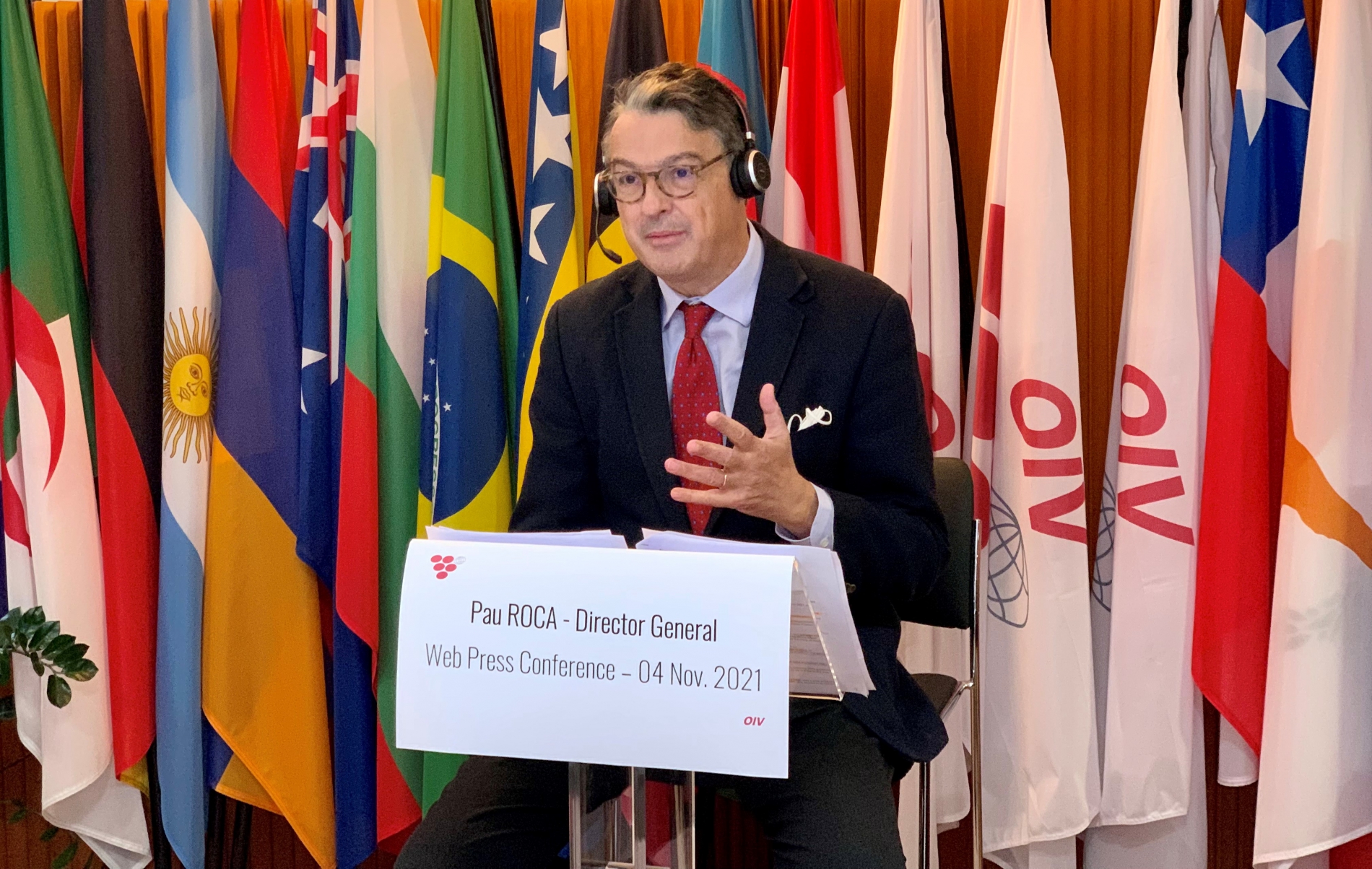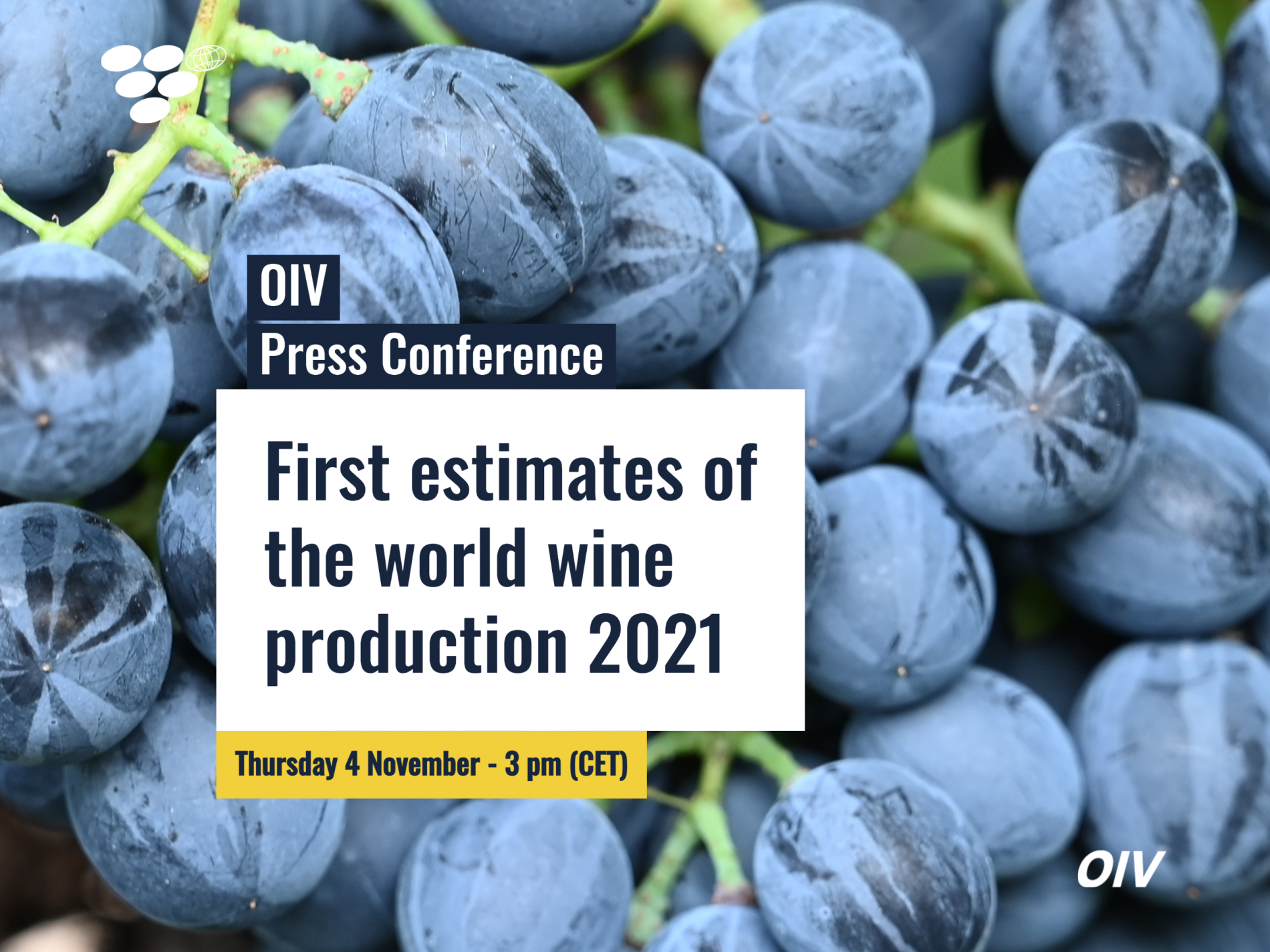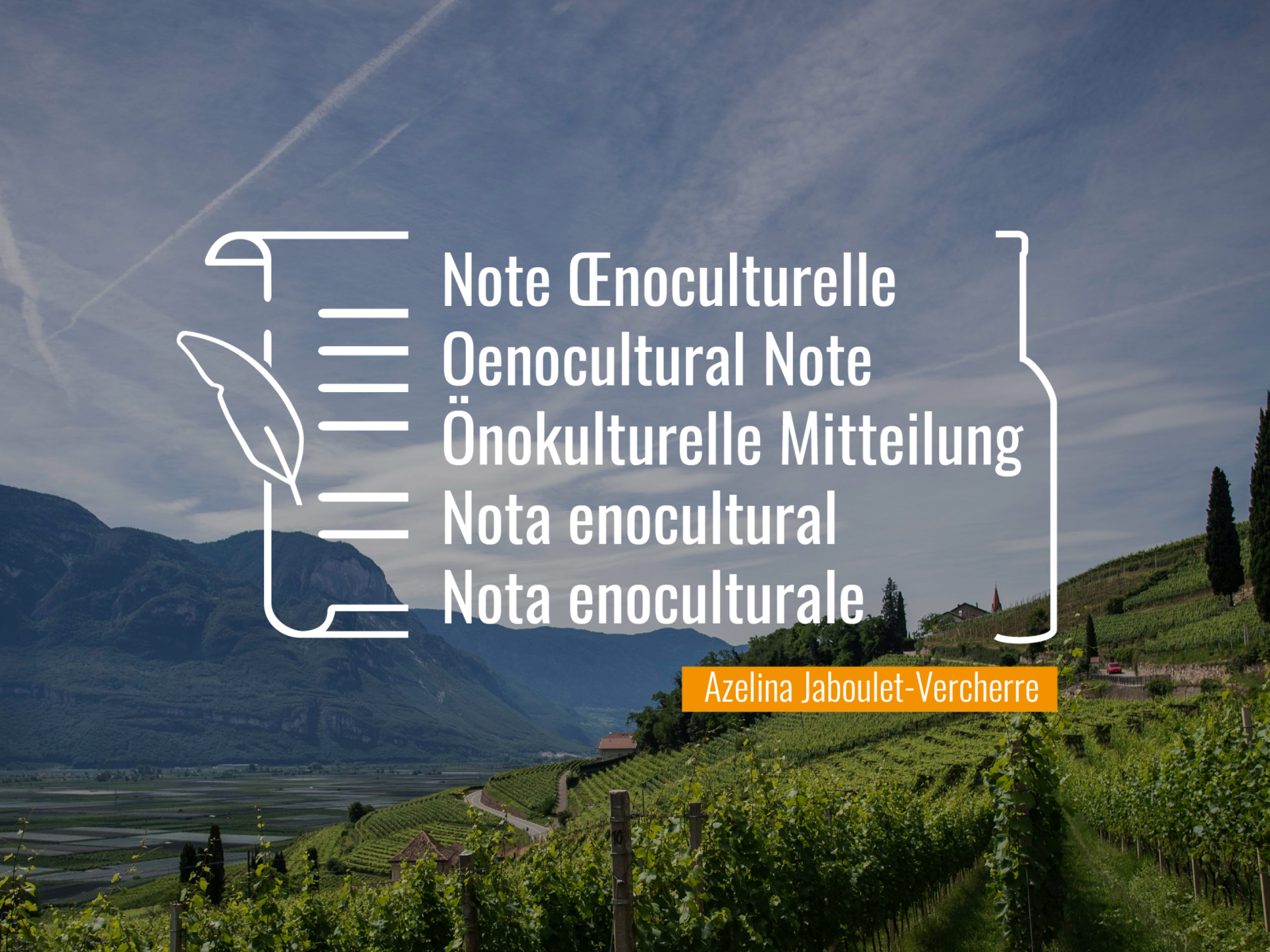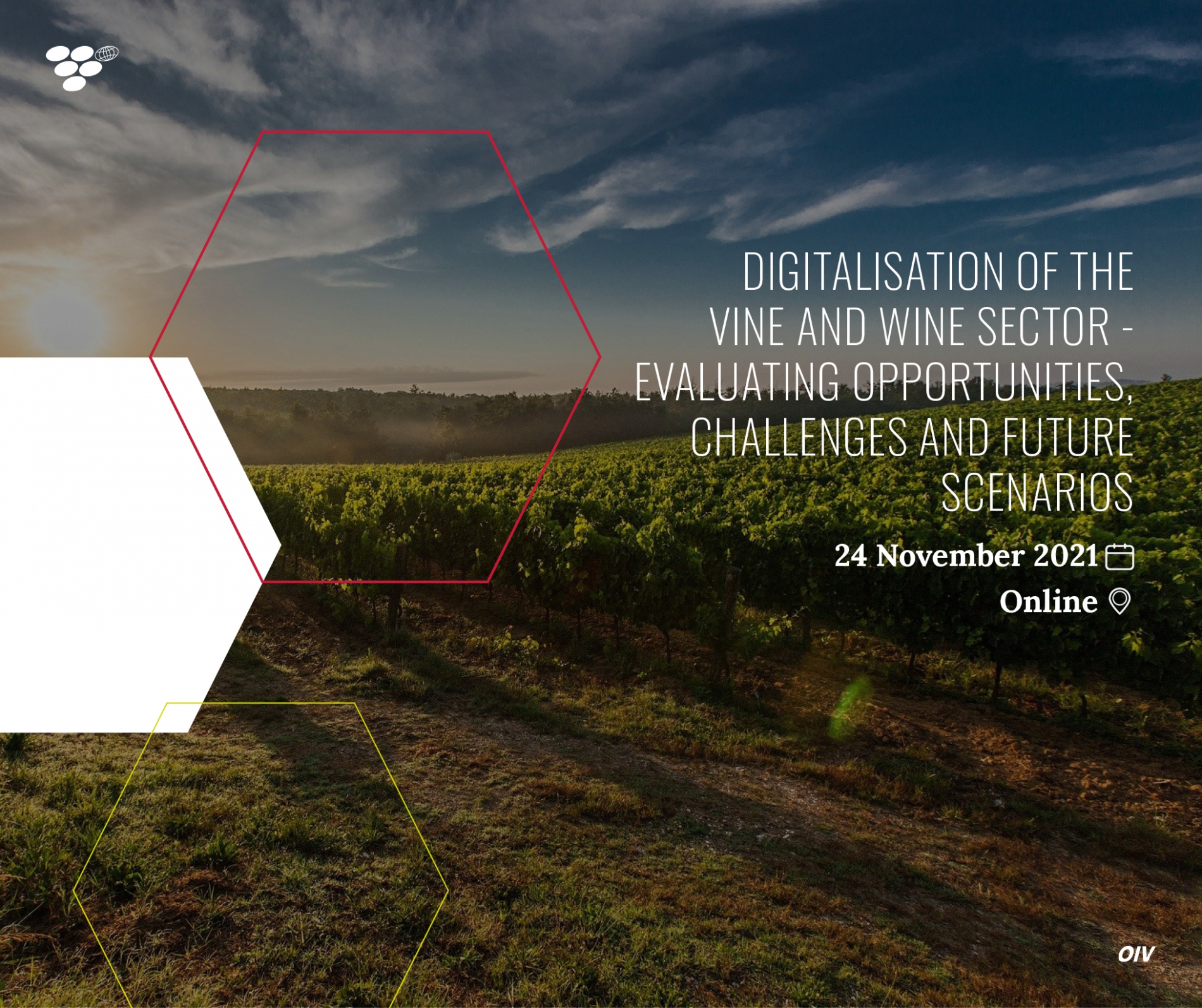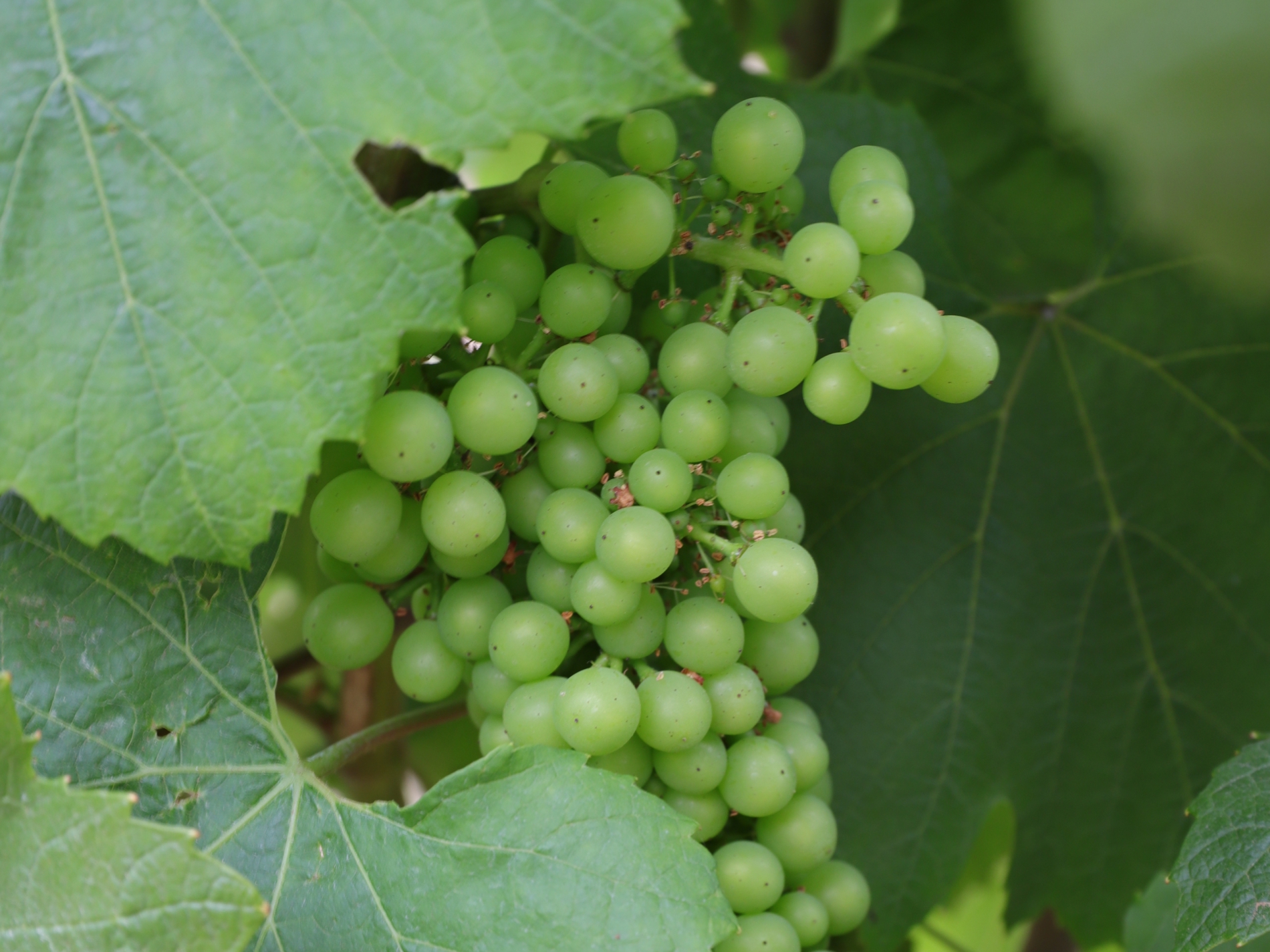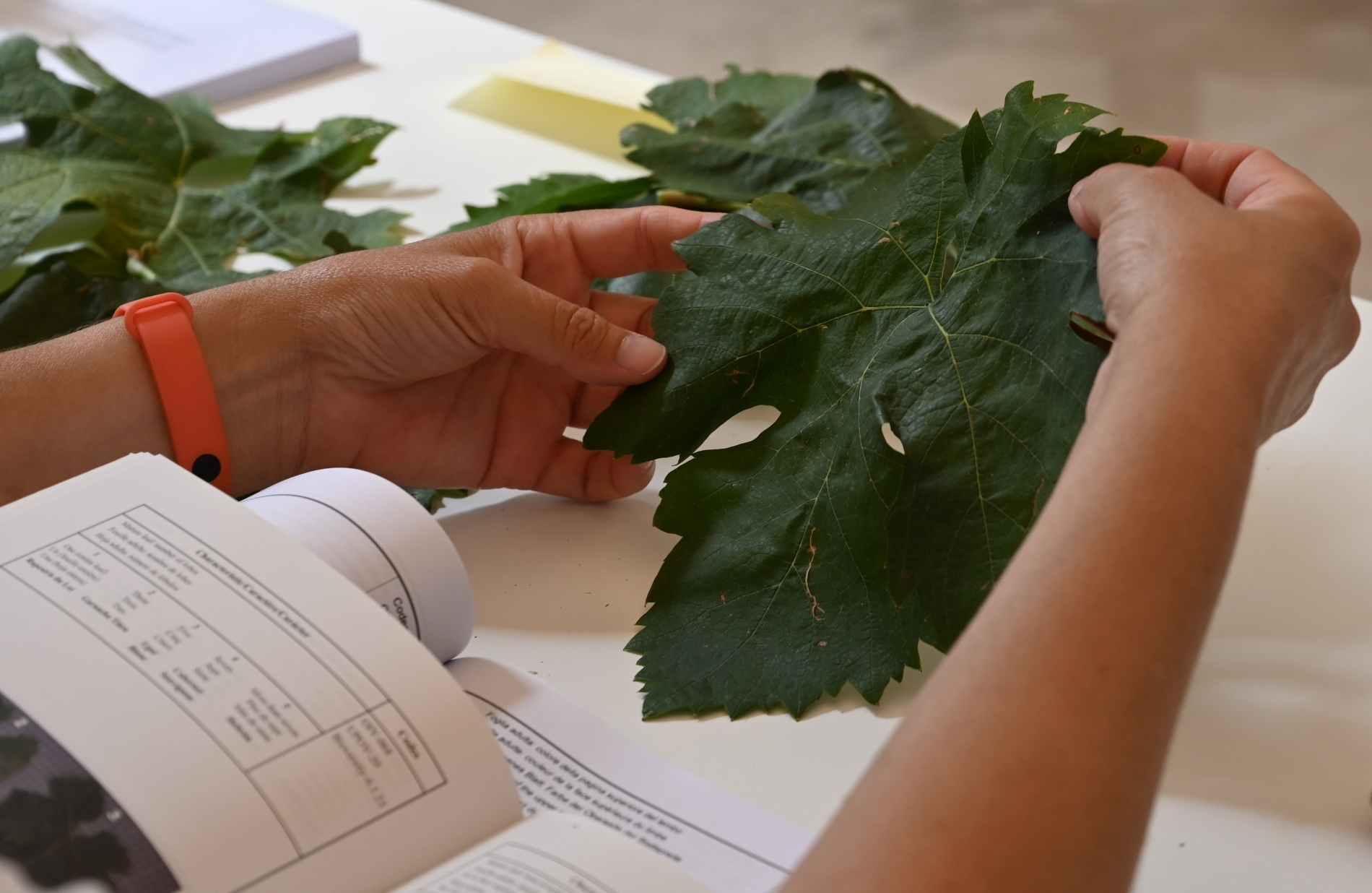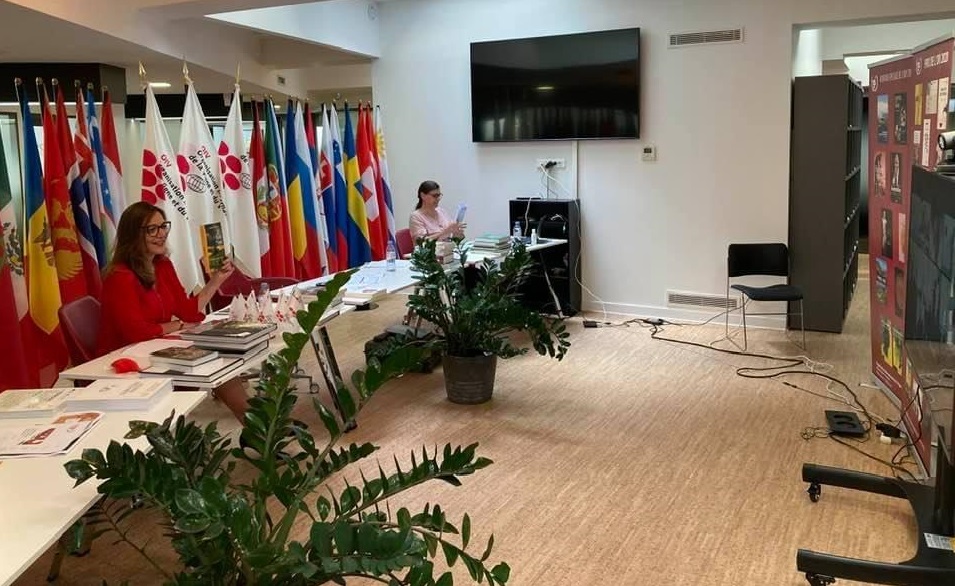28 Oct 2021
Speaking from the OIV’s headquarters in Paris, by web conference, Director General Pau Roca, presented on 4 November, the first estimates of 2021 world wine production.•Low production volume anticipated in the EU, notably in Italy, Spain, and France, which together lost about 22 mhl with respect to 2020 due late spring frost and overall unfavourable climatic conditions.• The only large EU wine producing countries that recorded harvests bigger than 2020 are Germany, Portugal, Romania and Hungary.• First harvest forecasts in the USA indicate production volumes slightly above those of 2020.• Very positive year for Southern Hemisphere vineyards where relatively favourable climatic conditions lead to record high production levels in countries of South America, South Africa and Australia, with New Zealand being the only exception.Replay Press release PPT Presentation[ENG]2021 Wine production first estimates
24 Oct 2021
The General Assembly has decided to transfer the headquarters of the OIV with the relocation of the Secretariat from Paris to Dijon. The 48 member states accepted France's proposal to provide the OIV with headquarters, ensuring temporal, legal and financial stability for the Organisation.Read the full press release
11 Oct 2021
To attend this online press conference, journalists are kindly asked to register here. • Date: Thursday 4th November 2021•Time: 3pm CET•Location: OIV App (soon available)•Language : English, French, Spanish
06 Oct 2021
Hildegard of Bingen (1098–1179)Azélina Jaboulet-Vercherre Associate Professor, Ferrandi Paris In the midst of this challenging vintage, we find ourselves searching for historical concepts that may allow us to counteract the turmoil of our time. The fields of agriculture, medicine and health are embracing a holistic understanding of the world, which in turn is reviving certain figures from our collective past. The allegory of nature re-emerges in our minds, whether consciously or subconsciously, and transports us to the fantastical universe of a bygone era. Perhaps it is a medieval universe, like that of Bernardus Silvestris, who in his twelfth-century work Cosmographia shows Nature (Nature) to be governed by an even more powerful Mother Nature: Noÿs. As intellect, wisdom and Divine Providence, Noÿs dictates to Nature the course that must be followed to restore order out of macrocosmic chaos1. Together, these two superior natures would be capable of re-establishing harmony among all species. Hildegard of Bingen, a ‘holistic’ spiritual ordering of knowledge As we explore the perspective of days gone by, let us remain in the twelfth century, which witnessed a revival of naturalism2, with Hildegard of Bingen (1098–1179). Hildegard was an abbess, a woman of letters, a doctor, a prophetess and a musician. In her works, she expresses a sensitivity to natural rhythms, making her an exemplary leader for today’s followers of the biodynamic movement. Her writings emphasise the close relationship between the internal movements of the body and Nature (life forces). This is especially true of her scientific work, Physica, alternatively titled Liber subtilitatum or Liber simplicis medicine (dating from around 1150)3. It presents an encyclopaedic inventory of Creation, covering cosmology, cosmography, people and their activities, such as planting vines and harvesting, diseases and their cures. Although she often denied it, Hildegard knew her classics. There are many facets to her originality, including her demonstration that being a woman is no obstacle to receiving the recognition, and even the esteem, of the great and the good among her contemporaries (Bernard of Clairvaux; Pope Eugene III). She was then largely overlooked – as is often the case with exceptional minds – until October 7th, 20124, when she was declared a ‘Doctor of the Church’. But even more fundamental for us is her spiritual ordering of knowledge, which we would describe as ‘holistic’. The Hildegardian view of Creation In addition to her awareness of the earth as one of the four elements of the universe, she was interested in different types of soil and their uses5. Often ascribed to Hildegard, Causae et Curae (Causes and Cures) gives the measure of the medieval naturalistic approach, dominated by the role of the luminaries, the sun and the moon (‘mother of all time’)6. The author particularly insists on the influence of the moon on the cultivation of vines (planting, harvesting, vine quality, but also corruption of the fruit) and the notion of terroir (hierarchy of soils based on sunlight and humidity, choice of the grape according to the region where the vine grows): "The trees that are in the eastern part and irrigated by the waters of the east grow well and give good fruit of various kinds, which taste good. […] The vines that grow there and are turned towards the east give a great quantity of wine of good quality. […] […] In the western part […] the wine is strong but not delicious, and it can be kept because the earth in this place contains heat and cold. […] [...] Indeed, wine develops more from heat than from cold7." The Hildegardian view of Creation is based on the reference system of the Book of Genesis: "At the time of man’s creation, a particular earth was drawn from the earth: this was man. [...] And the earth provided its greenness, according to the species, nature, habits and environment8." Creation is benevolent when we use it in a sustainable, healthy way Beyond the interplay between the divine principle and the ordering of nature (physical and human), let us stress the mirror effect, a typically medieval topos arising from reflections on the cosmos. Humankind is compelled to be dependent upon a higher law, often at our expense. This call to humility brings us face to face with the force of nature, a force to which we must submit and from which we receive nourishment, rather than the other way around. For the visionary abbess, the movements of the sun teach us a moral lesson: "When, by his evil deeds, he [man] transgresses justice, he weighs down and darkens the sun and the moon, so that these, following man’s example, manifest themselves in storms, rains or droughts […]9." "When the sun descends in winter, judgement fire inflicts its wrath through ice, frost and hail. By fire, by cold, by other afflictions, every sin thus incurs the punishment it deserves10." These sentences could be interpreted as entreaties. The intention of the ‘Sibyl of the Rhine’, it would seem, is to remind us that Creation is benevolent when we use it in a sustainable, healthy way. _____________________ 1 Bernard Silvestre, Cosmographie (Paris: Cerf, 1998). 2 Bernard Ribémont, De Natura Rerum: études sur les encyclopédies médiévales (Orléans: Paradigme, 1995), p. 89. 3 The title Physica was used from the Princeps edition on. For more information about the texts on which this study is based, see the work of Laurence Moulinier, in particular ‘La terre vue par Hildegarde de Bingen’ (March 2005), pp. 205–30. 4 Hildegard de Bingen, Les Mérites de la vie: principes de psychologie chrétienne, trans. and presented by Michel Trouvé and Pierre Dumoulin (Nouan-le-Fuzelier: Éditions des Béatitudes, 2014), p. 9. 5 Hildegard de Bingen, Le Livre des subtilités des créatures divines (Liber subtilitatum), trans. by Pierre Monat (Grenoble: Jérôme Millon, 1988), Vol. 1, pp. 29–31. 6 Translated from Laurence Moulinier’s ed. of the Latin text, Beate Hildegardis. Cause et cure. Munich, Akademie Verlag, 2003 (Rarissima mediaevalia, 1), based on the Copenhagen ms., fol. 6vb. 7 Ibid., fol. 11va-12ra. 8 Le Livre des subtilités des créatures divines, p. 29 (quotation translated from the French). 9 ibid., p. 31. 10 Hildegard de Bingen, Le Livre des œuvres divines: visions, presented and trad. by Bernard Gorceix (Paris: Albin Michel, 1982) (Coll. Spiritualités vivantes; Ser. Christianisme), pp. 39–40 (quotation translated from the French).
05 Oct 2021
The OIV launches a new international event on the digital transformation of the sector, bringing together experts from academia, governments, international organisations and the private sector from different countries. During this event, the preliminary results of the report produced by the OIV observatory will be presented.To attend this symposium register here Date - Wednesday 24th November 2021Time - 11am CET Location - App events OIV Languages - English - simultaneous translation into French and Spanish Speakers:International experts in digitisation from different backgrounds (universities, national and international public sector, private sector).Audience:The event will be public and will address a wide range of audiences.
28 Sep 2021
With the rising interest in the viticultural sector to find environmentally-friendly production methods, the upcoming thematic focus on the World Organic Vineyard, sheds light on the evolution of organic viticulture, which is a rising trend since the end of the 20th century. This development can be explained in large part by societal issues, particularly in relation to consumer health and environmental protection. This report surveys the development and repartition of certified organic vineyard areas producing wine grapes, table grapes and raisins, covering the period 2005 to 2019.There has been a surge in organic vine surface areas across the world, combined with a strong trend towards certification.The rate of conversion of vineyards to organic production has increased considerably since the beginning of the 21st century. Over the entire period analysed for this report (2005–2019), the certified organic vineyard surface area increased by an average of 13% per year, while the ‘non-organic’ vineyard area decreased by an average of 0.4% per year within the same timeframe. One of the factors explaining this intense growth rate is the fact that certified organic viticulture is still a recent phenomenon.In 2019, a total of 63 countries across all continents were involved in organic viticulture and the certified organic vineyard surface area was estimated at 454 kha, representing 6.2% of the world’s total area under vines.Spain, France and Italy together account for the 75% of organic vineyards in the world total distribution. In terms of the weight of organic vineyards as a share of the country’s total area under vines, the ranking is dominated by European countries. Italy devotes 15% of its vineyards to organic viticulture, followed by France (14%) and Austria (14%). The only non-European country inside the top 10 is Mexico, with 8% of its vineyard area certified organic.However, behind this growth in the world’s organic vineyards, there is nonetheless significant movement in both an upwards and downwards direction, since the conversion of a vineyard to organic cultivation is often complex and requires a considerable amount of adaptation. Weather phenomena or structural and/or organisational issues may drive producers to abandon their certification in organic production, resulting in a local decrease in organic vineyard areas.
19 Sep 2021
Director General of the OIV, Pau Roca, and the Community of Madrid’s Deputy Minister of the Environment, Spatial Planning and Sustainability, Mariano González Saez, presented 25 participants of 9 different nationalities each with an attendance certificate and an artistic illustration of the endemic variety Rayada Melonera. Rayada Melonera. Endemic variety of the Community of Madrid. Drawing by Anne Pieussergues Dherbicourt.This renewed initiative, launched by the OIV in collaboration with the Madrid Institute of Rural, Agricultural and Food Research and Development (IMIDRA), was created to actively promote ampelography by training new professionals in the sector. Ampelography is a branch of botany related to the study, description and classification of vine species and varietiesThe OIV International Course in Ampelography follows a historical trajectory that began in 1988 in Italy (ISV Conegliano), and continued in 1990 in France (ENSA Montpellier) and in 1992 in Germany (BZWG-IR Geilweilerhof). In 2021, the specialists in this discipline met at La Finca El Encin.In 2021, specialists in the discipline met at the El Encín estate, a centre of reference in Alcalá de Henares in the Community of Madrid where agri-food and agro-environmental research projects are carried out. Under the management of Gregorio Munoz and Felix Cabello, the Agri-Food Department conducts studies on obtaining quality wines and conserving and studying native varieties.On the five-day training programme, high-profile international speakers combined theory – in the ancient on-site chapel renovated for the occasion – with practice – in the richest vine collection in Spain, and one of the largest in the world, with nearly 4000 varieties. El Encín houses one of the most important vineyard collections in the world.In July 2022, the course will take place in Montpellier, France, in cooperation with the IFV (French Wine and Vine Institute), INRAE (France’s National Research Institute for Agriculture, Food and Environment) and Montpellier SupAgro. Thierry Lacombe, a French ampelographer and engineer at INRAE in Montpellier, was present throughout the week for the purposes of facilitating this handover. The course is in line with the ongoing work of the “Viticulture” Commission and the “Genetic Resources and Vine Selection” (GENET) Expert Group. Luigi Bavaresco, President of the GENET Group, participated in the opening and a part of the course by presenting the current and upcoming work. For more details on the work of the “Viticulture” Commission, contact Alejandro Fuentes Espinoza, Head of the Viticulture Unit, at viti@oiv.int and/or Solange Slack, OIV Project Manager, at comunication@oiv.int For more information on the upcoming 2022 course, send an email to oivampelography@oiv.int. You can also read testimonials from the speakers and the participants.
15 Sep 2021
The 52nd session of the Codex Committee on Food Additives (CCFA) was held virtually from 1 to 10 September 2021 at the kind invitation of the Chinese government. The OIV Scientific Coordinator Jean-Claude Ruf took part in the meeting, during which several decisions were approved.At the proposal of the Chilean delegation, the Committee examined potentially reopening Codex Alimentarius discussions on additives in wine. These discussions had been suspended in 2017 due to lack of consensus on the reference to the OIV in a footnote about the application of Good Manufacturing Practices (GMP).During this latest meeting, consensus was nonetheless reached to reopen the discussions, considering the importance that resuming this work holds for international trade.Despite the competence of the OIV being recognised by a great number of countries, some members indicated that Codex standards should be developed and applied at the global level, and should not contain references to standards established by other organisations. Other members in favour of the work emphasised that it was important to collect relevant information from members.The OIV expressed a desire to collaborate more closely with the Codex (CCFA) in order to avoid duplication of different international standards for grape wine.As a Codex Alimentarius observer, the OIV noted the concerns expressed by the Codex members and emphasised that it was ready to participate in a contributory way to this work in the spirit of compromise. In conclusion, the CCFA decided that a discussion paper, prepared by Chile in collaboration with the European Union and the United States, should be considered at its next meeting. The Committee also decided to keep the provisions on the list of additives awaiting approval for the grape wine category at their current procedure steps.Furthermore, the Committee called upon the JECFA to re-evaluate the specifications about lead in the monographs on bentonite, diatomaceous earth and active carbon. According to the JECFA’s evaluations, the corresponding monographs in the OIV International Oenological Codex could be revised.
13 Sep 2021
On 9 September 2021 in Paris, the International OIV Award Jury, composed of the scientific and technical elite of a number of OIV Member Countries, conferred 16 Awards and 10 Special Mentions. The winners were selected from a list of around 60 competing publications.
2021 Award winners hereAwards, Special Mentions and Recognitions of the Jury of the OIV Awards 2021 The President of the Award Jury, Azélina Jaboulet-Vercherre, and the Scientific Secretary, Richard Pfister, thanked the many readers from around the world who had evaluated the publications with impartiality and professionalism. Almost 40 countries were represented by the authors and very numerous contributors to the works. This 2021 vintage demonstrates the rigorous work of the authors supported by their editorial teams, and also showcases the high standards of photography in the works. In recognition of their important role, 3 photographers have received the Acknowledgement of the Jury: Christophe Deschanel, Gerda Louw et Sophie Dumont. The awards presented by the 2021 Award Jury remain true to the original objectives of the OIV Awards, dating back to 1930: to encourage research in all countries and to promote the international dissemination of knowledge about vine and wine. Submissions for the 2022 Awards are open from 1 September until 28 February 2021.
